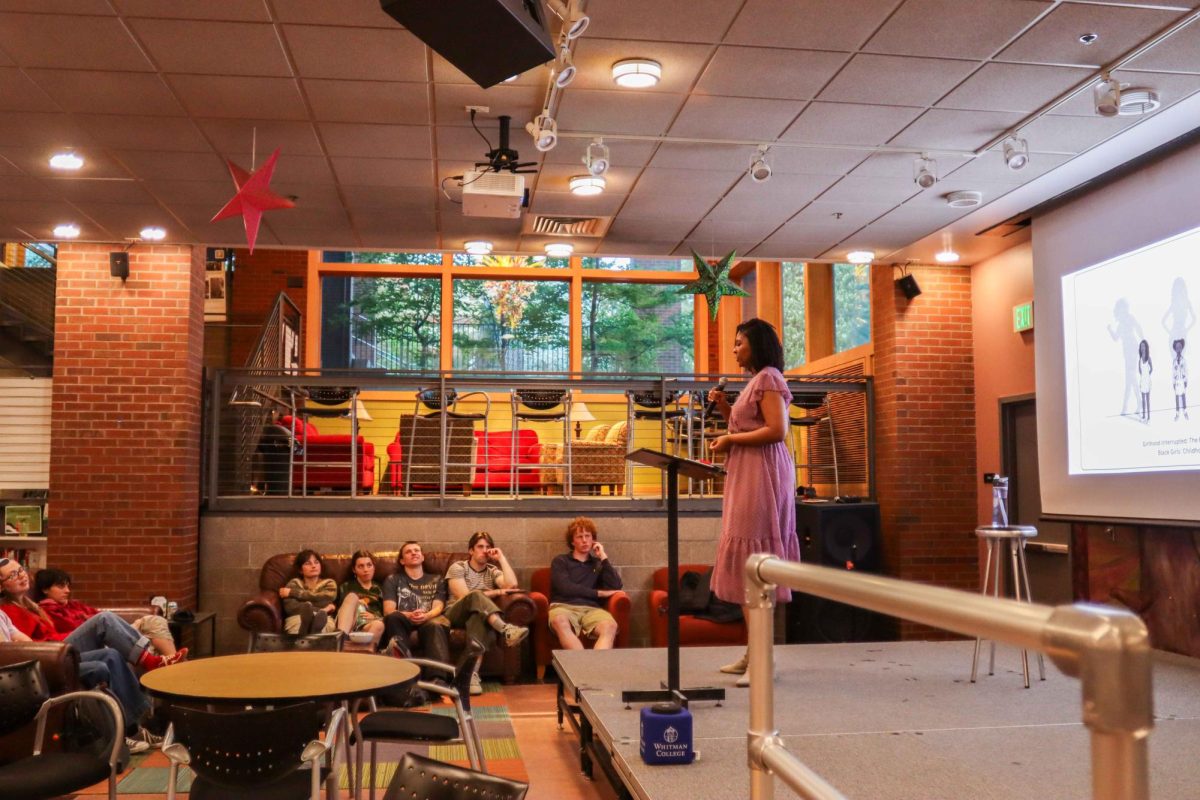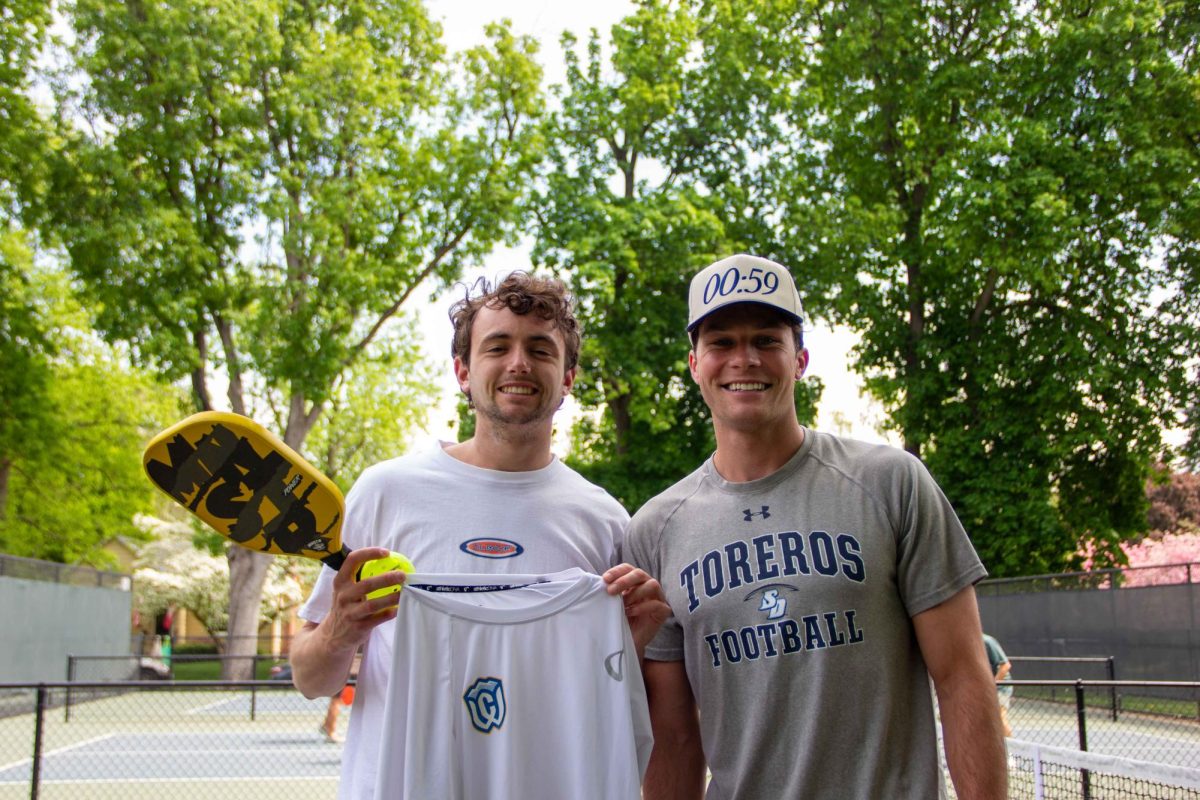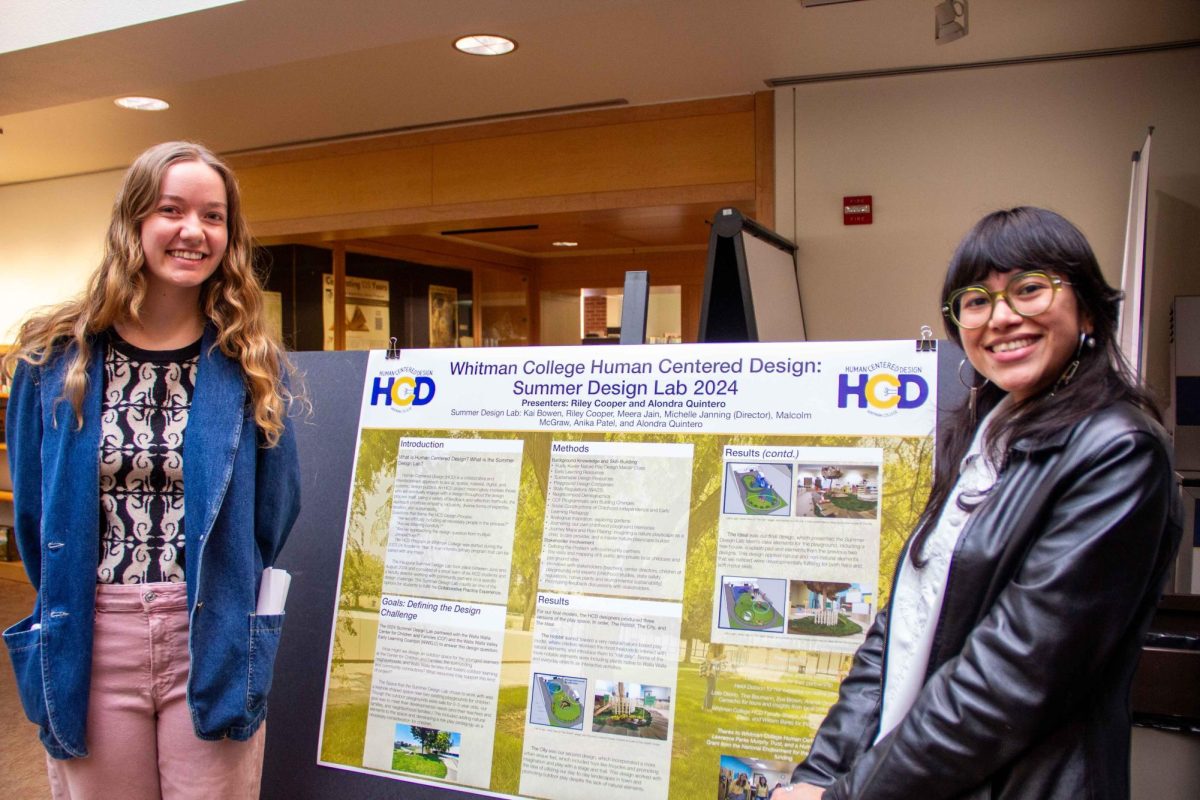During an incredibly busy week for Whitman students, between midterms, rallies and settling back in after October break, students found their way into the Maxey auditorium on Oct. 12th and 13th to watch the documentary trilogy centering Washington D.C.’s Black Lives Matter Movement; Free The People.
Filmed, edited and directed by Kintsugi Kelley-Chung and Andrew Jasiura, the documentary details the six months of Black Lives Matter protests, mutual aid organizations and political movements between Juneteenth and Thanksgiving 2020.
For Kelley-Chung, documenting and capturing moments from the 2020 D.C. protests started on June 2. That day, their photo ended up in The Washington Post Magazine along with his father, André Chung’s, photos. Since that moment, Kelley-Chung has been passionate about telling the full story behind the movement.
“Let me find the story that is this movement,” Kelley-Chung said. “Let me not think of this as just individual moments that are happening but as a whole era, there’s a story that’s happening here.”
Jasiura spent the summer in Washington D.C. with Kelley-Chung in order to develop and capture the stories that are happening. Throughout the creation of the documentary, they worked hard to center an honest, untold perspective.
“We try to tell what the mainstream media isn’t saying,” Jasiura said. “As far as what our goal was, it was to tell the story of the protest from the eyes of D.C. residents.”
Kelley-Chung explained how his intentions and interactions with the movement influenced the documentary, and were the reason he chose to dedicate time to the project.
“Being a black man going into it … I’m connected to this on a personal level,” Kelley-Chung said. “I’m not documenting this just for the sake of documenting it, because I know this is historically important. I’m documenting it because I know that this is work that needs to be done to secure my life and my family’s lives.”
As protests continued and communities in Washington D.C. continued to fight and provide mutual support to those in need, the documentary continued to grow and evolve into an insight into protesters’ lives.
“This documentary is less about telling people what happened in D.C. but more so showing them what happened and giving people an idea of what it felt like to be out there in the nation’s capital in the heat of the pandemic, in the heat of these massive social uprisings that were happening,” Kelley-Chung said.
While filming, Kelley-Chung and Jasiura spent time getting to know prevalent activists and volunteers who spent an incredible amount of time and energy protesting, supporting local communities and creating change. For Kelley-Chung, this was an aspect of the filming process that really stuck with him, with certain people permanently changing his outlook on things.
“Probably one of my favorite parts about making this film was meeting all of these people and sharing this moment in time with them and being able to learn from them,” Kelley-Chung said.
Jasiura, who spent countless hours editing over 200 hours of footage for the documentary, explained some of the difficulties that arose after getting to know the activist community so well over the course of the months of filming.
“[It was difficult] Especially during the editing process, having to watch hours and hours of people you call your friends being brutalized by police,” Jasiura said. “But we did not want to editorialize and put our perspective into it, we fully expect that people are going to be upset at some point in the film no matter what your perspective is, but it’s real.”
The documentary also depicted mutual aid and important volunteer work, many organizations that are still working for underrepresented communities to this day. For Jasiura, this is a crucial aspect of resistance and one of the ways to give support.
“Obviously revolution requires fire and flames but there is so much more to creating sustainability. If people were just fighting the whole time it [the protests] would be over quick, but it’s being able to build this community and sustain the idea of protest and fighting against systemic injustices,” Jasiura said.
Kelley-Chung and Jasiura were passionate and committed to shaping the way viewers saw the protests, giving some insight into the protests that may not have been seen by many who are not connected to local D.C. life.
“In such a policed city like D.C., cops have complete control of the narrative, but we wanted to show that there is more than that,” Jasiura said.
“It was very difficult to choose to not get involved or engaged in the movement itself and having to always refrain from that and stay behind the camera,” Kelley-Chung said. “But we didn’t want to influence the movement itself, we wanted to show how it evolved on its own.”
Kelley-Chung also explained the role of documentarians, journalists and other creatives who focus on current news and pressing issues as a crucial part of history. While technically a bystander, Kelley-Chung explains that the filmmakers’ way of contributing to the movement was producing and educating.
“As documentarians, this is our contribution to the movement,” Kelley-Chung said. “Documenting what people are doing is just as important as doing the work, because otherwise we can’t share that these things even happened. This work is vital to the history and the remembrance of this movement for future generations.”
The two-day screening was the first time “Free The People” was screened at a college campus, both Kelley-Chung and Jasiura were incredibly excited to be able to discuss the documentary and their activism with students who are equally passionate about creating change, and creating in general.
“We’re really excited that we had the opportunity to bring [“Free The People”] to Whitman and analyze it through an academic lens and then have these great conversations with the students that are here,” Kelley-Chung said.
When asked about what Kelley-Chung hopes Whitman students take away from the time he and Jasiura spent on campus, he emphasized believing in each individual’s power.
“You yourself as an individual have so much ability to support a community,” Kelley-Chung said. “Challenge your thoughts, challenge everything, challenge the way your government works, challenge yourself. Don’t be complacent.”
While Jasiura and Kelley-Chung have left Whitman College, they are consistently working on new, inspiring projects that will continue to influence the way students view the world around them. To continue supporting their critical work, check out their website rxnin.life and follow them on Instagram @rxninlife.






Mason Hardbarger • Oct 19, 2023 at 9:27 am
W